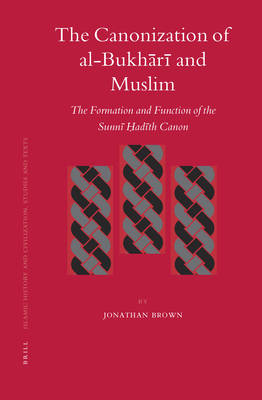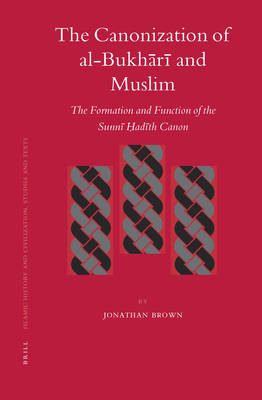
- Afhalen na 1 uur in een winkel met voorraad
- Gratis thuislevering in België vanaf € 30
- Ruim aanbod met 7 miljoen producten
- Afhalen na 1 uur in een winkel met voorraad
- Gratis thuislevering in België vanaf € 30
- Ruim aanbod met 7 miljoen producten
Zoeken
The Canonization of Al-Bukhārī And Muslim
The Formation and Function of the Sunnī Ḥadīth Canon
Jonathan Brown
€ 323,95
+ 647 punten
Uitvoering
Omschrijving
The two 'Authentic' ḥadīth collections of al-Bukhārī and Muslim are the most famous books in Islam after the Qur'ān - a reality left unstudied until now. This book charts the origins, development and functions of these two texts through the lens of canonicity. It examines how the books went from controversial to indispensable as they became the common language for discussing the Prophet's legacy among the various Sunni schools of law. The book also studies the role of the ḥadīth canon in ritual and narrative. Finally, it investigates the canonical culture built around the texts as well as the trend in Sunni scholarship that rejected it, exploring this tension in contemporary debates between Salafī movements and the traditional schools of law.
Specificaties
Betrokkenen
- Auteur(s):
- Uitgeverij:
Inhoud
- Aantal bladzijden:
- 456
- Taal:
- Engels
- Reeks:
- Reeksnummer:
- nr. 69
Eigenschappen
- Productcode (EAN):
- 9789004158399
- Verschijningsdatum:
- 5/06/2007
- Uitvoering:
- Hardcover
- Formaat:
- Genaaid
- Afmetingen:
- 163 mm x 246 mm
- Gewicht:
- 907 g

Alleen bij Standaard Boekhandel
+ 647 punten op je klantenkaart van Standaard Boekhandel
Beoordelingen
We publiceren alleen reviews die voldoen aan de voorwaarden voor reviews. Bekijk onze voorwaarden voor reviews.








